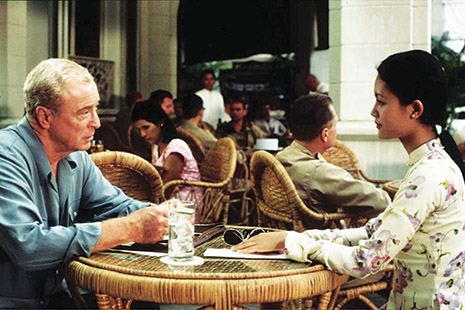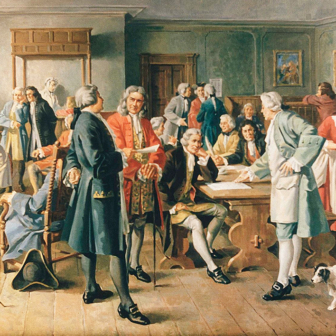The Man Within My Head
By Pico Iyer | Bloomsbury | $35
PERHAPS all serious biographers experience in some way the feeling of having their minds taken over by someone else. None of us lives in a vacuum but I suspect that most of us stop short of feeling that we’re living someone else’s life as well as our own, that our thought processes and emotional responses are constantly being filtered through another sensibility. Maybe Leon Edel, as he produced his magisterial five-volume biography of Henry James, was aware of another man within his head. Indeed, how could he not have been? And the reference to James is not as random as it may seem: he was in a sense the literary mentor and “father” of Graham Greene who, in turn, is the man within the head of Pico Iyer, author of this tantalising new – what? Memoir? Autobiography? Travel book? Philosophical exegesis?
Perhaps Iyer is using all these modes as he describes one of the strangest and most fascinating cases of a life influenced at every turn by another writer – especially as Greene doesn’t always make for an easy mind-guest. Lodger might be a better word; guest suggests someone who might leave in the foreseeable future. But even lodger won’t quite do, as we shall see.
The recurring motif in Iyer’s book is the father–son connection, whether he’s talking about real-life pairs or something more imaginatively conceived. First and most obviously there’s Iyer’s relationship with his own father, a Bombay-born, Oxford-educated academic whose career takes him to California in the heady 1960s. Iyer evokes touchingly the “young man from the suburbs of Bombay who’d always dreamed of living among the ancient cloisters and tolling bells he’d read about with such constancy from afar.” Winning India’s only Rhodes Scholarship in 1950 enabled him to give substance to the dream, and he learned to balance the influences of Eastern mystics against those of rigorous Western philosophers as well as the English poets. The other crucial father–son pair is that of Greene and his father, the headmaster of a school in Berkhamsted. Iyer visits the town decades later, and understands what must have been Greene’s urge to escape “the innocent treadmill the town seemed to represent.” And there are glimpses, too, of Greene as a not-very-reliable father to his own children.
Most important, though, is the way that Greene becomes Iyer’s “adopted parent.” Not that they ever met or that Iyer wanted to meet him – fearing that, if he did so, “I’d be further from knowing him than ever. A man within your head whispers his secrets and fears to you, and it can go right to your core; accompanied by flesh and blood… you’re aware only of the good manners and laughter that keep you on the far side of a barrier.” Suddenly, he finds himself “writing Greene stories” instead of reading them. He is aware that “his” Greene is not the Greene of biographers such as Norman Sherry, who comes in for a few dismissive swipes, but the Greene who is his “chosen father,” and he goes on to distinguish between the “fathers we choose” and “the ones we inherit.”
So, what in Iyer’s life and background led him to “choose” Greene? With his intercultural roots – from India to California with a slab of boarding school in Oxford – his was an essentially scholarly background. But the boarding school gave him some perception of one of Greene’s formative influences, and perhaps his family’s peregrinations had left him with a Greenian urge to travel, especially to remote corners of the world of the kind where Greene’s protagonists would often find themselves – even if they weren’t looking for them. In this matter, and others, the book again and again seems to assert the centrality of The Quiet American, which Iyer names as Greene’s “archetypal” novel.
He offers two main reasons for this. The middle-aged Englishman, Fowler, has been living in Saigon with a Vietnamese woman, Phuong, when a young American, Pyle, arrives in the city. Fowler senses that Pyle will displace him for Phuong, just as American cultural imperialism will oust the jaded European influences. The two men are only superficially seen as competitors; more crucially, there comes to be a kind of father–son connection, and Iyer is concerned with how so much of Greene’s fiction takes this thematic motif on board. As well, though, just as the young American is a more chivalrous suitor than the Englishman abroad, Greene is also preoccupied here (and frequently elsewhere) with two contrary urges: the longing for England and the need to escape its greyness – especially in this period of the decline of British supremacy after the second world war.
On his own travels in Bolivia, Iyer reflects on how “the foreigner, precisely by going to another country, brings a whiff of a different world into the lives of the locals he meets.” As a schoolboy, he had flown every few months between his English public school and his home in California and he now felt that he had been moving between the worlds of Fowler and Pyle, between an old world of history and diminishing hopes and one with its eye almost aggressively on the future. In fact, there is an ongoing awareness of contrasts of many kinds at work in Iyer’s life – and in his perception of the lives of both the father who created him and the one he has created. On the one hand is his father’s longing for England and the culture it has stood for; on the other is Greene’s restless seeking after strange and, in his own word, “lawless” roads while never being quite able to shake off the bounded freedoms of his English childhood and youth.
One scene – in which Iyer is writing at an internet cafe in Saigon – somehow strikes a very Greenian note. As he observes a young woman tapping away at her Hotmail account, he sees several decades of cultural change at work. It is possible to imagine Greene, magically transported across those decades, noting the disparities and continuities. There’s little or no suggestion of Iyer’s travelling in Europe: like Greene, he is drawn to the strange, often potentially dangerous terrain of, say, Bolivia – where the book begins and ends, hurtling around perilous mountain roads – or politically volatile Sri Lanka. Neither Iyer nor his adopted father was looking to replicate the orderly world of his youth. It is not just a matter of Iyer’s consciously following in Greene’s footsteps: “Greene never wanted to be seen as fortune-teller or prophet, but I’d found him leading as much as shadowing me across the globe, if only because he listened to the world so closely he knew what it would do next.”
BUT why Greene? Why not one of those other English authors his father had read – Orwell or Forster, for instance? It wasn’t particularly that Greene was Catholic (albeit of a peculiarly paradoxical kind) or a reputed spy. At heart, it was because “he offered me a way of looking at things, and the way one looked became a kind of theology, a preparation for a way of acting.” If it seems better to quote than to paraphrase on matters so important to the author, this is partly because he writes with a singular grace and precision as he grapples with the idea of the man within his head. He is firm in his belief that he not so much chose Greene as was chosen by him.
With “a way of acting” derived from his immersion in Greene’s work, Iyer is in no sense an eccentric, nor an unworldly acolyte besotted with the claims of his mentor. He emerges as a man with love and respect for his parents, with friends – one of whom has a nasty accident when accompanying Iyer in the hazardous mountain passes of Bolivia – and with a wife who understands his need to pursue the trails laid down for him by his unaware mentor.
Iyer has found in Greene not only spectral signposts that lead him far from their common starting place, the English school, but also a literary corpus frequently haunted by fathers or their surrogates. Wherever Greene’s novels are set, Iyer finds this constant strain at work, whether it is in the Christian story of the son of God, or in the experiences of the shabby private detective who takes his son with him on the job in The End of the Affair, or in the idea, in the same novel, of “a man cuckolded by God,” or, one might add, in Pinkie’s hated recollections of his parents’ sexual practices in Brighton Rock.
The perception Iyer brings to bear on Greene’s oeuvre results in a lightly worn erudition that enables him to evoke Marvell’s “The Garden” when he writes of how he fell deeper into “Greene thoughts in a Greene shade.” And the erudition is laced with an unobtrusive wit too, as when, in Havana, he describes “a dusty, high-ceilinged apartment, up a creaking, sweeping staircase, which might have belonged to Miss Havisham if she’d gone to serve her country in the tropics.” Or when he speaks of sitting in a courtyard in London “on one of the four days of sunshine permitted every year in Britain by royal decree.”
This is not essentially a book of quotable one-liners, and certainly Greene himself was never an author of whose fiction one would say, Laugh? I nearly died. The Man Within My Head is hard to classify. It is really a work sui generis. It explores and ponders the ways in which one life might entwine itself into another but without obscuring the individuality of the entwinee. It is full of insights into the work of the adopted father: in years past when I often taught Greene, I’d have been very glad to have recommended students to Iyer for idiosyncratic but never merely eccentric readings of the author, and for the intelligence of his reflections on such matters as freedom and constraint, faith and belief. It would have done students much good without their even realising it.
If you haven’t read Greene for some time, Iyer may make you want to repair that lapse; if you’ve never read Iyer at all, then don’t hesitate to start with The Man Within My Head. •




